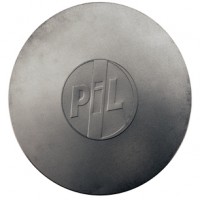
Public Image Limited
Metal Box (1979)
eatdogs
There are certain albums that transcend boundaries and end
up in the conscience of the public. Little tickles that flick your ears, or
perhaps something that makes the hairs on your neck stand up. You might have
heard something like it before in another time and place, or perhaps even in
the womb. It’s something that is a part of you. You can feel it inside like an
extension of your body. Whether it be the drumming, or lack thereof, bass rhythms
and guitar plucking, or maybe even the reverberations of the vocals in the mix;
no doubt there is something there
that resonates with you in some manner.
Public Image Limited (PiL) released their second album known
as Metal Box in 1979 (later reissued
as Second Edition). This one album is
considered the landmark and highest achievement in the Post-Punk genre. It’s
defined all styles and helped usher in new ideals and spaces in which other
artists could follow freely and grow in their own creativity.
Two other Post-Punk albums stand out as direct competitors
in drastic style and substance to Metal
Box. You have the debut album Y
by Bristol maniacs The Pop Group; a psychedelic/free jazz punk adventure into
the gutters of life. An album full of many ideas and chaos, Y is an unstoppable force. Changing pace
a bit you have Deceit by Camberwell
art punks This Heat; a minimalist creation of political ideas spread out over
desolate landscapes of fear and doubt. An album full of dread and found sounds,
Deceit is a collage of desperation
barely holding onto itself.
Where does Metal Box
stand and why is it more highly praised? Perhaps because it’s challenging, and
yet you can understand it. You feel accomplished at the end of the whole
ordeal. Metal Box askes the listener
to pay attention, but it doesn’t overstay it’s welcome. The two albums
mentioned above are more like college courses into further study while Metal Box is the final exam of your
first year. The final test before you decide what to do with yourself.
This album contains twelve tracks of soulful, yet intrusive
lyrics and dynamics not yet familiar in 1979. The bands mentioned, as well as
other contemporaries you can’t leave out like Gang of Four and Joy Division
were all on the cusp of breaking new group in music. The overlaps of genres
combining into what we now call Post-Punk was refreshing and still sounds so to
this day. Metal Box has never gone
out of style.
A dissection of track-by-track won’t be found here. In fact,
when the album was first released in a metal film canister (thus the name of
the album!), each 12" vinyl could be played in any order so each listen was
a new experience. But, in regards to the music contained within, it is very
much worth mentioning the amazing brilliance of guitarist Keith Levene. His trademark
Veleno guitar, (solid aluminum!) was the tool that created the signature
Post-Punk sound so many bands copied and still try with varying results. U2
guitarist The Edge is the biggest example, and not to dismiss him because The
Edge did spread the style to farther reaches and commercialism, he’s no Levene.
All honors need to go to Levene and Metal
Box is his crowning achievement.
Another aspect to pay close attention to is bassist Jah
Wobble. Incredible is the correct verb to describe his playing. I urge all
listeners to hear this album on vinyl. Digital tarnishes the deep deep bass frequencies
that were recorded. His playing is the groove that keeps the music latched
together, flowing freely and with a great service to the Dub inspirations that
PiL loved so much.
The drumming is good as well, and keeps a good pace with the
rest of the band, but most of it was handled by five different people including
Levene and Wobble. Still the minimalism is nice and not overbearing.
And then to round out the cast you have vocalist John Lydon.
After The Sex Pistols broke up Lydon formed PiL with Levene and Wobble and very
quickly released their first single “Public Image”. The promise from that first
single and their debut album was realized on Metal Box. Lydon still sings with the same snotty manner as before,
but it’s more focused, avant-garde, and freeform. Almost like beat poetry, but
without the fluff and more ranting. Lydon’s contribution to PiL’s long career
is his best work.
A few more things to mention; this album contains ambient
tunes, long drawn-out instrumentals, and studio manipulation. You can
understand now how these inspired future artists like Radiohead to tinker
around with the recording tools. So far ahead of its time it never stops
swinging for the fences.
Don’t waste time. Listen to this. Dig it!